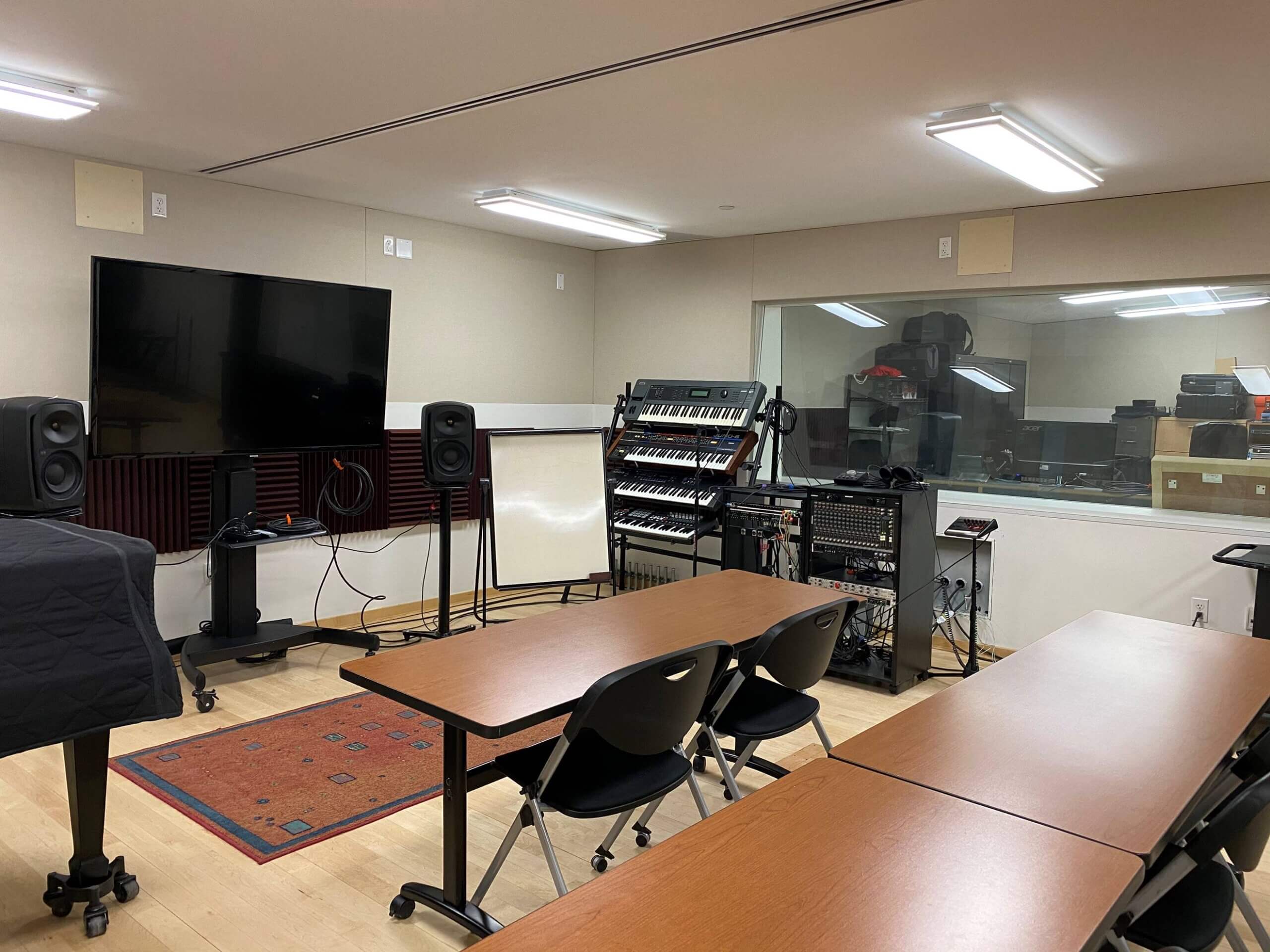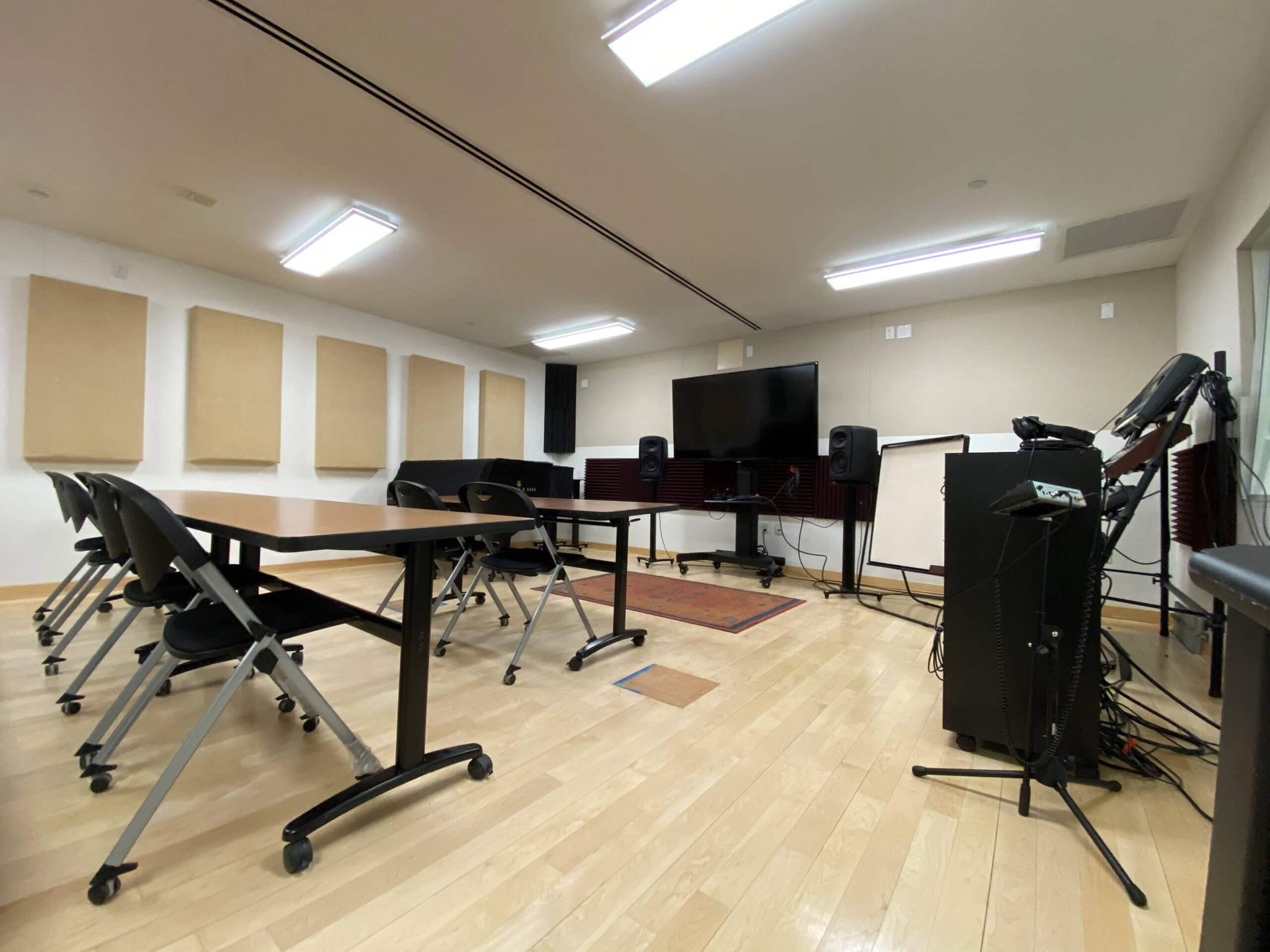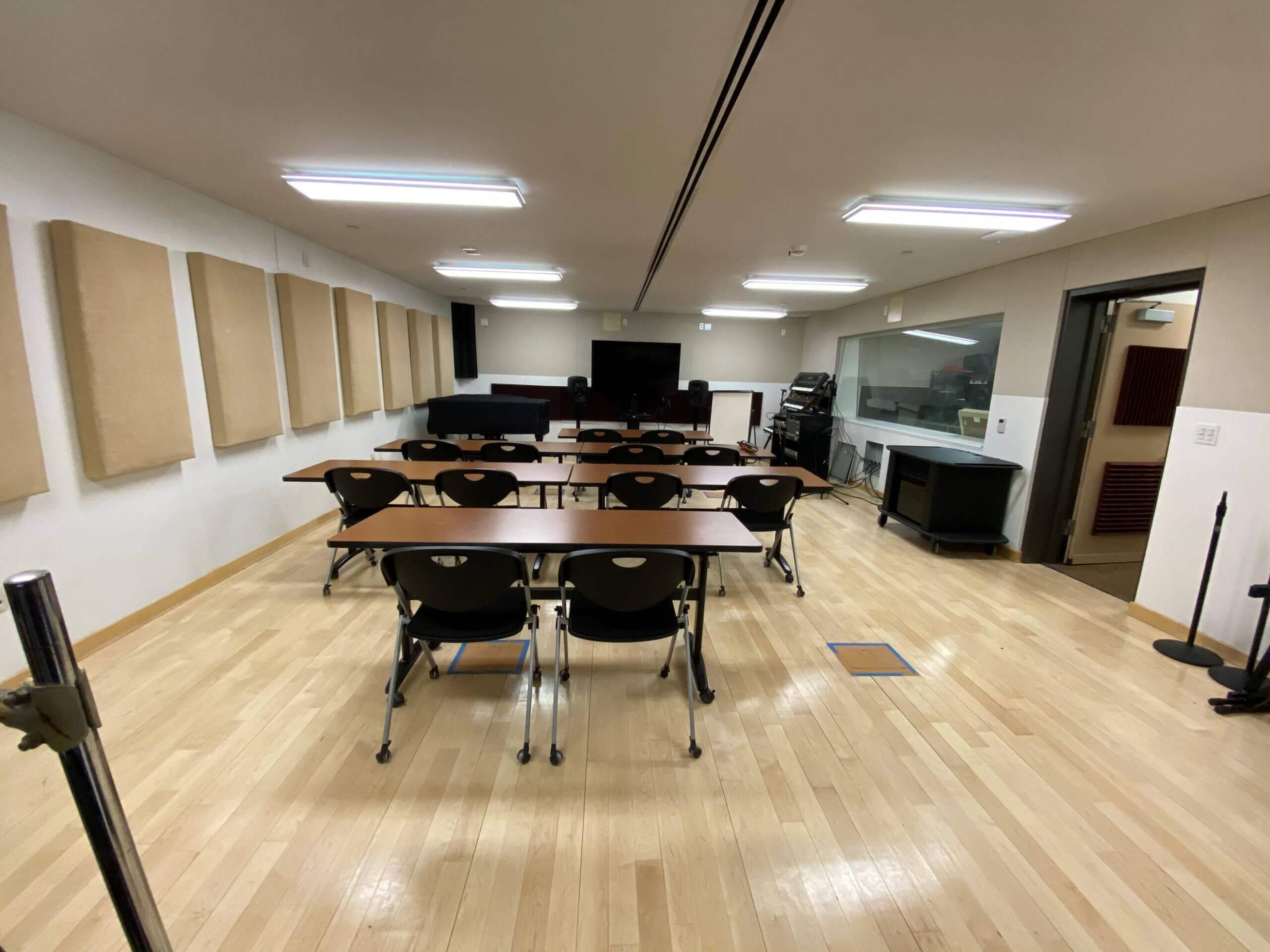The Music Department offers the following undergraduate programs outside of the BM:
Bachelor of Arts (BA) in Music
The BA with a major in music is available through the School of Arts and Sciences (SAS). Students enrolled in SAS must also complete its core and a minor.
Students enrolled in the School of Business, the School of Environmental and Biological Sciences, and the School of Engineering may complete the major in music in addition to their school of enrollment.
The BA in music requires students to complete 41 credits in music through Mason Gross School of the Arts. Students gain a strong understanding of fundamentals of music within the context of a broad education across multiple disciplines. To declare the BA in music, students must complete basic courses in music theory.
For questions about the BA in music, contact the music undergraduate advisor.
Minor in Music
The minor in music is open to students in schools other than the Mason Gross School of the Arts who are not pursing the BA with a major in music and to Mason Gross students who are not pursing the bachelor of music degree. The minor in music requires students to complete 18 credits in music through Mason Gross. Students declare the minor through their school of enrollment. Review the minor in music course requirements (link to resources document).
For questions about the minor in music, contact the music undergraduate advisor.
Music Technology
The music technology program at Mason Gross explores the intersection of music and technology in the areas of creativity, education, and performance. It fosters research in emerging technologies and technology-based performance practice, and it provides students the technical skills they need to succeed as professional musicians in the 21st century. Courses are offered in recording arts, digital audio composition, electronic music history, interactive music, and instrument design.
Facilities used in the program include the Sharon A. Fordham Multimedia Lab Classroom, located in the Mabel Smith Douglass Library, and the Robert E. Mortensen Hall Technology Suite and Recording Studio.
The music technology area presents the annual New Jersey Digital Audio Concert, which features performances of computer-based music by Rutgers students, faculty, and guest artists. Additionally, the Rutgers Interactive Music Ensemble, a performance ensemble that incorporates a wide range of musical technologies combining acoustic instruments and electronically generated sound, presents concerts at Douglass Library and Shindell Choral Hall.
Minor in Music Technology
Music technology is a rapidly growing field that includes the study of acoustics, recording, production, composition, analysis, programming, and hardware design. The minor in music technology combines theoretical concepts in scientific, technical, and musical subjects with the opportunity to apply these concepts in a practical manner.
Students declare the Minor in Music Technology through their school of enrollment.
- 07:700:103 or 07:700:133 Introduction to Music Theory (face-to-face/online) or above (3 credits)
- 07:700:105 or 07:700:135 Making Music with Computers: Introduction to Digital Audio (face-to-face/online) (3 credits)*
- 07:700:284 Digital Audio Composition (3 credits)
- 07:700:311 Art of Production I: Recording (3 credits)
- 07:700:312 Art of Production II: Mixing (3 credits)
Advanced technology electives (choose one):
- 07:700:469 Interactive Computer Music (3 credits)
- 07:700:470 Electroacoustic Musical Instrument Design (3 credits)
*Music majors will substitute 07:700:127 Introduction to Music Technology for 07:700:105/135.
- Students must receive a minimum grade of C in each required course in order to declare the minor
- Students may transfer up to six credits from another institution towards completion of the minor pending a review of the syllabus from the previous institution
- Students may not receive both the certificate in recording arts and minor in music technology
- Students matriculated in degree programs outside of the Mason Gross School of the Arts must declare the Minor in Music Technology through their school of enrollment.
Core Curriculum for Recording Arts Certificate (18 credits):
- 07:700:103 Introduction to Music Theory or higher level (face-to-face) (3) OR 07:700:133 (online)
- 07:700:105 Making Music with Computers: Introduction to Digital Audio (face-to-face) OR 07:700:135 (online) (3) *
- 07:700:284 Digital Audio Composition (3) **
- 07:700:XXX The Business of Music (3)
- 07:700:311 Art of Production I: Recording (3)
- 07:700:312 Art of Production II: Mixing (3)
*Music majors will substitute Introduction to Music Technology (07:700:127) for 07:700:105/135.
**Digital Audio Composition (07:700:284) is typically offered each Spring semester; however, there is a time conflict with Art of Production II (07:700:312). Therefore, if taking these courses in the same academic year, it is suggested that students take both Digital Audio Composition (07:700:284) and Art of Production I (07:700:311) in the Fall semester and Art of Production II (07:700:312) in the Spring semester.







